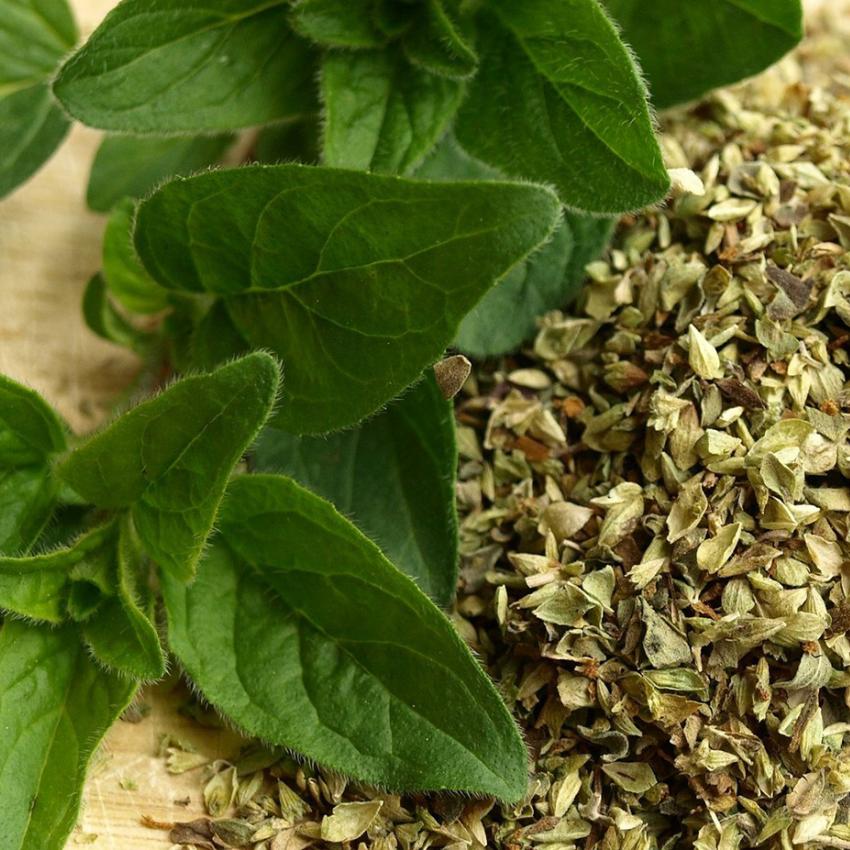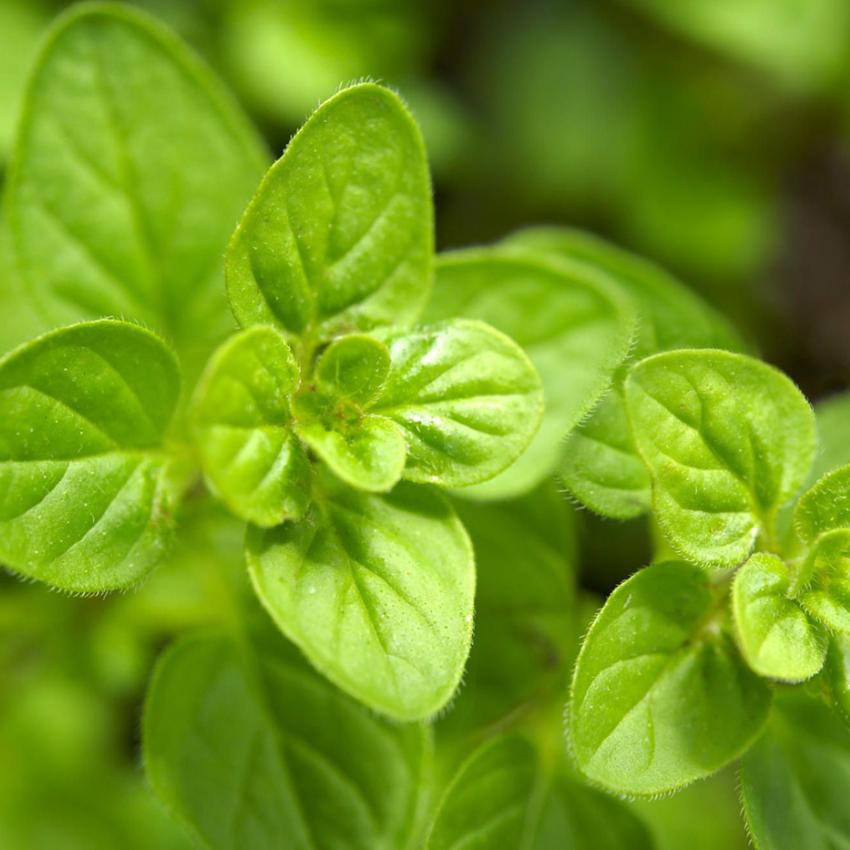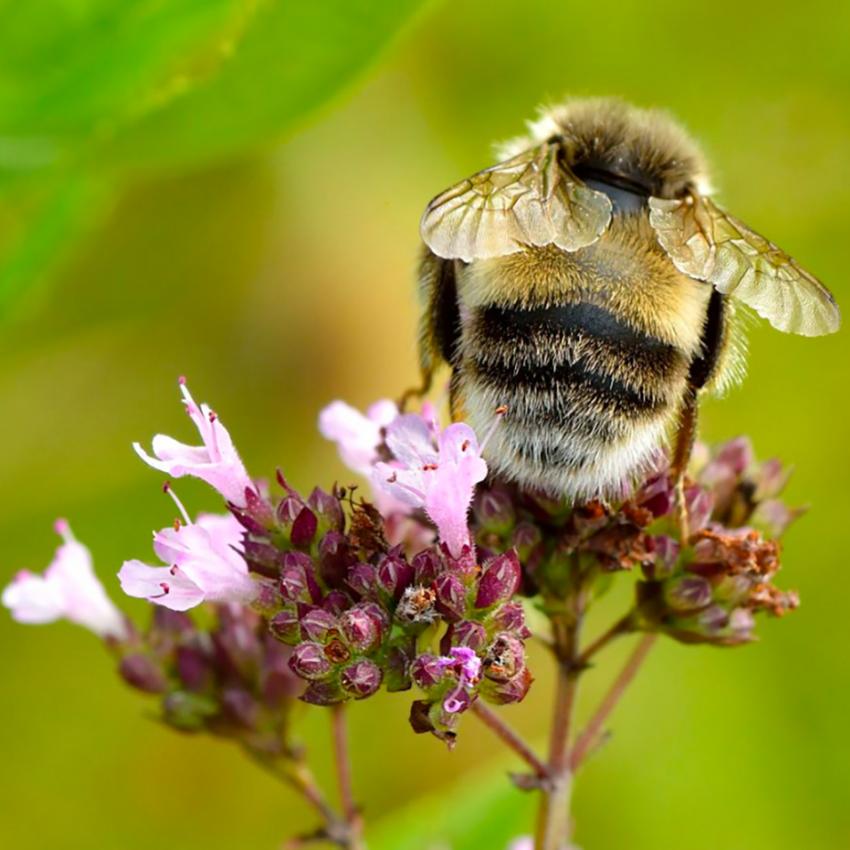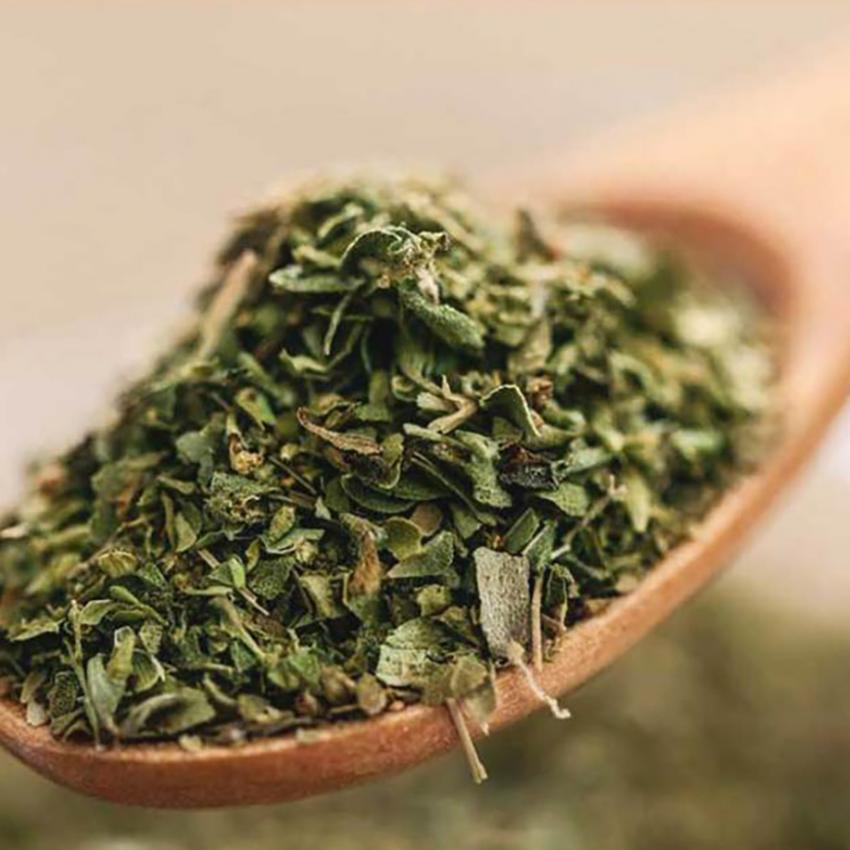



Oregano
Origanum vulgare
Oregano is a flowering plant in the mint family (Lamiaceae). It is sometimes called wild marjoram, and its close relative, O. majorana, is known as sweet marjoram. The word ‘oregano’ is derived from Classical Greek ‘origanon’. This is a compound Greek term that consists of ‘óros’ meaning ‘mountain’, and ‘gános’ meaning ‘brightness’, thus, ‘brightness of the mountain’.
Oregano is a culinary herb, used for the flavor of its leaves, which can be more flavorful when dried than fresh. It has a warm and slightly bitter taste, which can vary in intensity. Good-quality oregano may be strong enough almost to numb the tongue.
Oregano is prominently known as the staple herb of Italian cuisine. Its popularity in the U.S. began when soldiers returning from World War II brought back with them a taste for the "pizza herb", which had probably been eaten in southern Italy for centuries. It is most frequently used with roasted, fried, or grilled vegetables, meat, and fish. Oregano combines well with spicy foods. The herb is widely used in cuisines of the Mediterranean Basin, the Philippines, and Latin America, especially in Argentina. In Turkish cuisine, oregano is mostly used for flavoring meat, especially for mutton and lamb. In barbecue and kebab restaurants, it can be found as a condiment, together with paprika, salt, and pepper. The dried and ground leaves are often used in Greece to add flavor to Greek salad, and is usually added to the lemon-olive oil sauce that accompanies fish or meat grills and casseroles.
Oregano oil has been used in folk medicine over centuries. Oregano essential oil is extracted from its leaves. Oregano or its oil may be used as a dietary supplement, there is no clinical evidence to indicate that either has any effect on human health.

Find the plant...
